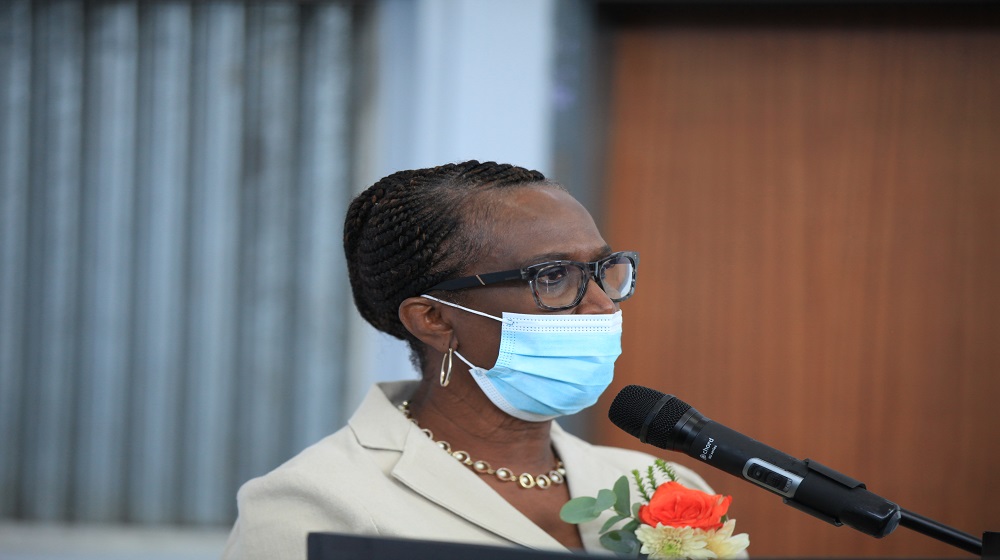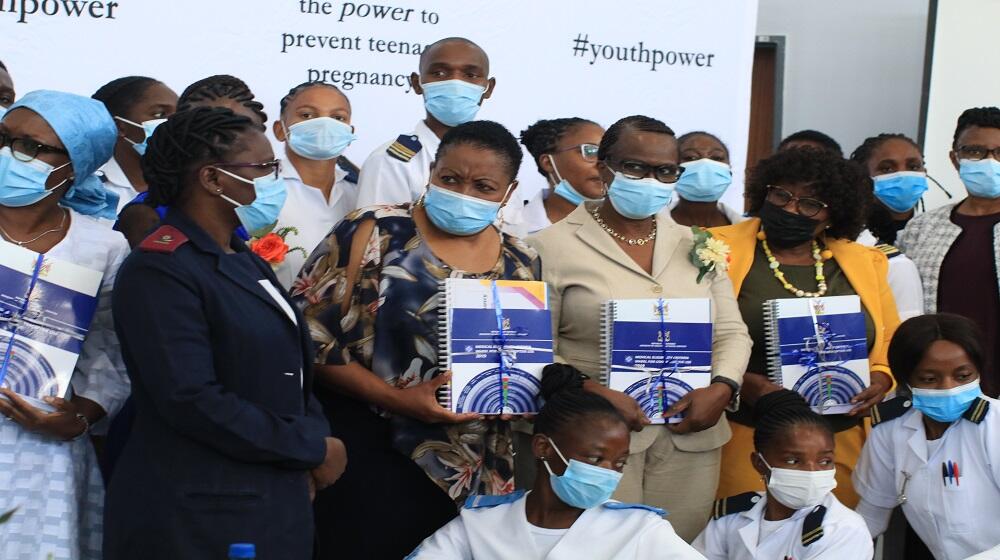
WINDHOEK – Namibia, Namibia has reached a significant milestone with the launch of the revised National Guidelines for Family Planning on the 20th of April 2022 in Windhoek. The Ministry of Health and Social Services, the United Nations Population Fund (UNFPA) Namibia Country Office and other partners worked together on improving the guidelines to ensure that they are on par with the needs and demands of today.
Family planning allows women to delay, space, or limit pregnancies, hence preventing unintended pregnancies, unsafe abortion, and pregnancy-related risks.
“Individuals and couples in Namibia have the right to determine whether, when, the number, and how often to have children as stipulated in the National Policy on Sexual, Reproductive and Child Health,” said Hon. Dr. Esther Muinjangue, Deputy Minister of Health and Social Services during her keynote address.
She also emphasised the Namibian government’s willingness to make family planning services available at all clinics, health centers, hospital casualty departments, outpatient departments as well as all the wards where female and male patients are admitted.
This ultimately efficiently reduces maternal and infant mortality and consequently contributes to the achievement of Goal 3 of the Sustainable Development Goals (SDGs) to which Namibia is a signatory. Due to encouraging women to actively decide on the number and spacing of births, family planning contributes to the SDGs while helping to reduce poverty. Investments in contraception directly translate to economic growth and development.
UNFPA is committed to investing in adolescents and the young people’s sexual and reproductive health including ensuring access to youth-friendly reproductive health services as per recently concluded investment cases for family planning.
In Namibia, the importance of family planning as a contributing factor to the improvement of quality of life has been recognised since independence in 1990. The Government is therefore committed to harnessing the health and socio-economic benefits of family planning and meeting the demand for family planning by making the services available, accessible, acceptable, and affordable to all women and men of the reproductive ages. The revised National Guidelines for Family Planning will be incorporated at all public health facilities where the service is free.
The guidelines will help improve the provision of counseling, male & female condoms, pills, and injectable contraceptives (DMPA) are provided in all health facilities including outreach. Hospitals provide the full contraceptive method mix including male and female sterilisation. At the household level, community health workers are allowed to distribute condoms and provide health education on the importance and availability of family planning in the health facilities.
“UNFPA is committed to investing in adolescents and the young people’s sexual and reproductive health including ensuring access to youth-friendly reproductive health services as per recently concluded investment cases for family planning,” said Sheila Roseau, UNFPA Namibia Country Representative.


